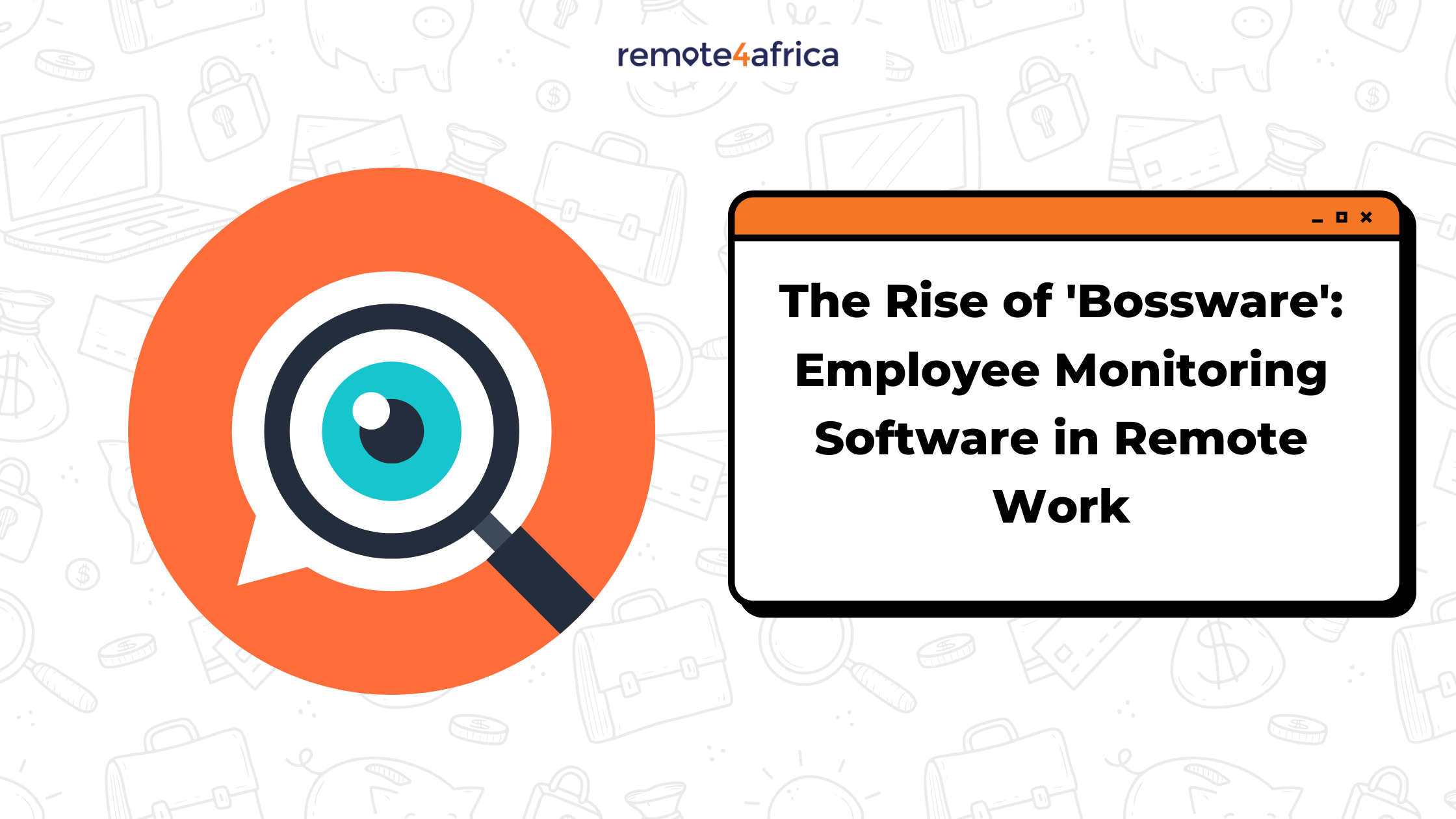The Rise of 'Bossware': Employee Monitoring Software in Remote Work

Over the years, more and more organizations have switched to remote operations. This change presented a challenge: how do employers monitor their employees while they are working remotely? Employers want to ensure their remote workers are being productive and aren't on personal errands on the company's time. This brought about the development of Bossware.
According to Zippia, 60% of remote organizations monitor their employees' activities while working. This study also revealed that the demand for software to monitor employees has risen by 65%.
Remote4Africa has thousands of remote and hybrid jobs available in all sectors.
What is Bossware?
Bossware is a term for the software tools that allow employers to monitor their remote employees' activities.
What does Bossware do?
Bossware tracks time spent on different tasks, website visits, and the number of keystrokes made. Some Bossware even goes a step further by taking periodic screenshots or recording video of their employees' screens.
This is not a new technology; employers have been monitoring their employees for years. But the shift to remote work has now made it a necessity since physical supervision is not possible.
What purpose does Bossware serve?
Bossware offers several advantages to employers of remote workers and also the employees, depending on the perspective. These advantages include the following:
- It provides data-driven insights into productivity levels, which can be incredibly valuable for project planning and time management.
- It helps ensure accurate billing and time tracking, especially for companies that operate on billable hours.
- Employees gain time management skills and self-improvement, which would help them focus their attention as required for their jobs.
What are the controversies of Bossware?
The use of bossware has controversies surrounding it. While employers want to know what their remote employees do during company times, a study by Zippa revealed that 59% of employees experience anxiety and work-related stress due to the constant monitoring. This is because employees might not be aware of how much data is being tracked and what the data is used for.
Employees begin to build a sense of distrust towards the organization as they feel the organization does not trust them to do their job unsupervised. The stress of constant monitoring can lead to burnout and decreased level of job satisfaction, which would eventually have an impact on productivity.
How to use bossware ethically?
The key to the ethical use of bossware is striking a balance in transparency. Remote organizations using bossware should be upfront with their employees about what is being monitored and why.
As an organization, creating a positive work culture involves trusting your employees to do their jobs. Their overall productivity should be considered rather than micromanaging every action. Here are ways to monitor employees productivity while working from home.
For employees, it is your responsibility to perform your duty to the best of your abilities. Understand your remote organization’s policies and ask questions whenever you are confused about the data that is being collected as you work.
Conclusion
The current change in the work landscape is bound to happen, and software such as Bossware would be created to help counter the challenges that arise as the world progresses. Bossware offers remote organizations the opportunity to monitor their remote employees while working.
This is a great problem solver for employers, but for employees, it might be considered intrusive on their privacy. The essential thing is to find a balance to ensure that both employees and remote workers achieve mutual trust and each party is satisfied in order to ensure a healthy work culture.
